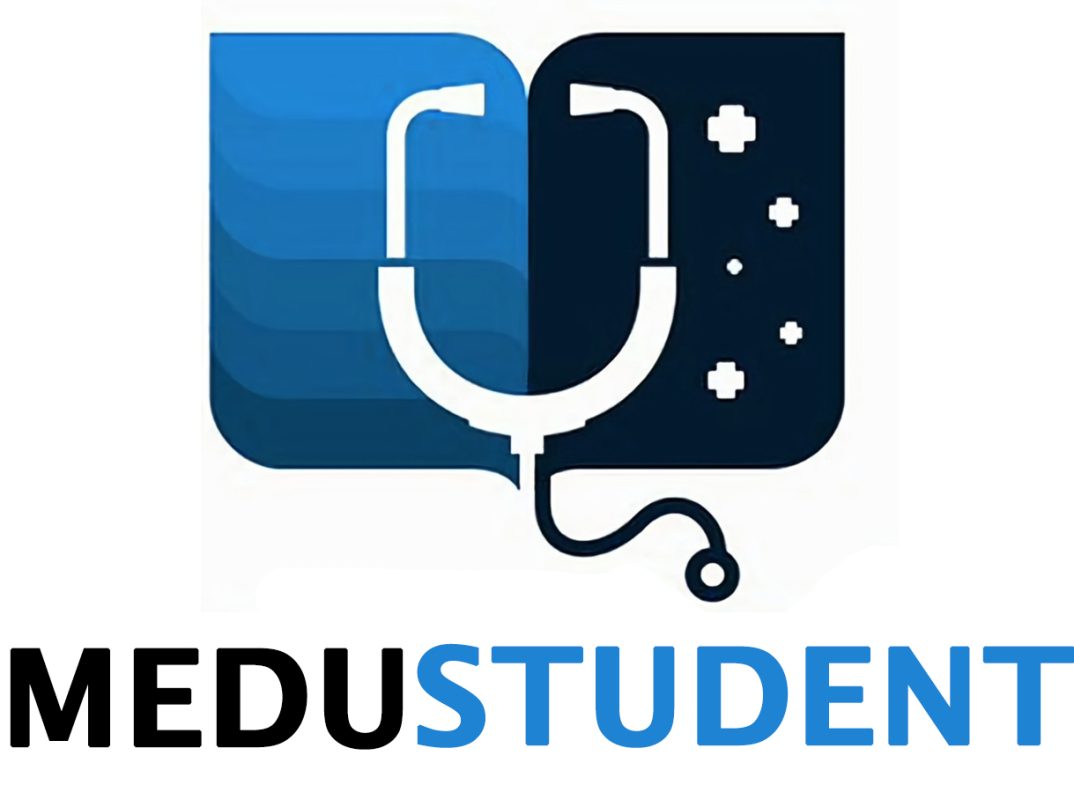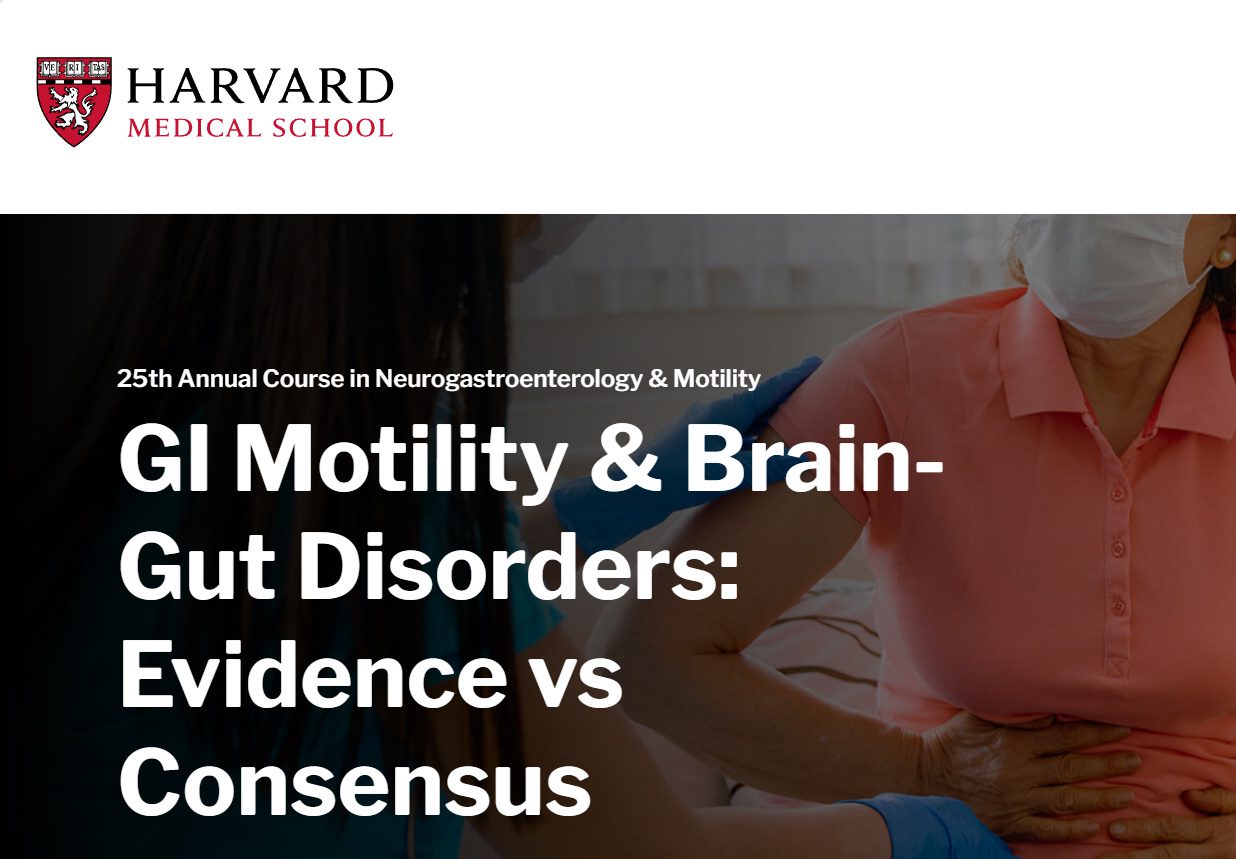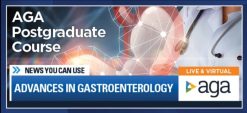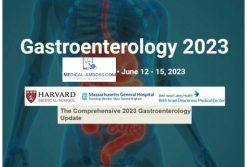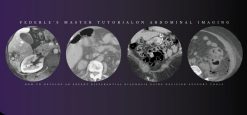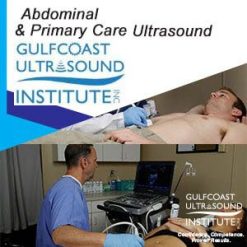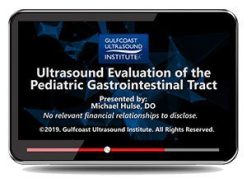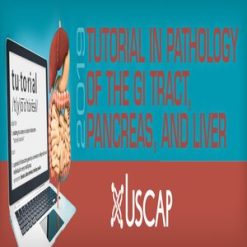Harvard GI Motility & Brain-Gut Disorders Evidence vs Consensus 2024
$20,00
This Product is shared via google drive download link, So please share your correct Gmail id while placing the order .Please note that there are no CME points or certificate associated with this course Samples for Courses Can be found here : Free Samples Here!
Include: 16 videos + 47 pdfs, size: 12.4 GB
Categories: GIT, INTERNAL MEDICINE, OBSTETRICS & GYNECOLOGY, Pediatrics
Tags: GIT, INTERNAL MEDICINE, OBSTETRICS & GYNECOLOGY, Pediatrics
Harvard GI Motility & Brain-Gut Disorders Evidence vs Consensus 2024
Include: 16 videos + 47 pdfs, size: 12.4 GB
Target Audience: gastroenterologists, primary care physician
Information:
- GI motility and brain-gut disorders are extremely common and can be a challenging part of primary and subspecialty care. New diagnostic techniques and therapies are constantly being developed, and their roles continue to evolve. As many controversies in management exist, the goal for the course in Neurogastroenterology and Motility at Brigham and Women’s Hospital, accredited by Harvard Medical School, is to incorporate both evidence-based and expert observation in order to help clinicians develop strategies to address these disorders in practice. This intense, one-day course is comprised of two parts: a morning session with case-based panel discussions and mini-lectures, and an afternoon practical session.
- The practical session will also feature breakout classes dedicated to advanced practice providers and to behavioral and psychological therapies for GI disorders. Both sessions will offer interactive learning formats. Overall, the aim for this course is to help participants evaluate, treat, and manage patients with esophageal conditions including problems with swallowing and acid reflux disorders. We also hope to help participants develop new strategies to effectively manage gastric and colonic motility and function diseases. Our goal is that participants gain confidence using current and emerging diagnostic testing and therapies and enhance their ability to interpret clinically available GI motility tests through workshops and small group sessions.
Who Should Attend
- Nurse Practitioners
- Physician Assistants
- Nurses
- Specialty Physicians
- Primary Care Physicians
This course may also be of interest to clinicians who practice in Gastroenterology, Surgery, Internal Medicine, Pediatrics, and Adolescent Medicine, Family Medicine, Lifestyle, and Mind-Body Medicine.
Learning Objectives
Upon completion of this activity, participants will be able to:
- Evaluate, treat, and manage adult and pediatric patients with esophageal conditions including those with problems with swallowing and acid reflux disorders.
- Implement new strategies to effectively manage gastric and colonic motility and function diseases.
- Distinguish between current and emerging diagnostic tests and therapies to better manage gastrointestinal disorders.
Topics:
- 1. Importance of integrated psychosocial care in GI.pdf
2. How to integrate GI psychology care.pdf
3. Introduction to Brain-Gut Behavioral Therapies.pdf
4. How and why to teach diaphragmatic brething.pdf
A1A – Esophageal Manometry Basic class.pdf
A1A – Esophageal Manometry Basic Session (Gavini & Owyang).mp4
A1B – Ambulatory reflux testing handout.pdf
A1C – Breath Testing Harvard Motility MGB 2024.pdf
A1C – Breath Testing.mp4
A1D – LDear Basic Course Nutrition 2024.pdf
A1D – LDear Nutrition 2024 (Dear).mp4
A2A – EndoFLIP (Dooley, Hiramoto).mp4
A2A – EndoFLIP Handout BH Final 2024.pdf
A2B – ARM basics lecture (Brien & Bar).mp4
A2B – Handout – Basic Class ARM 2024 final.pdf
A2C – Gastric and SB Testing_Surjanhata.pdf
A2C – Gastric and Small Bowel Testing (Surjanhata).mp4
A2D – Pelvic Floor Physical Therapy 2024.pdf
A2D – Pelvic Floor Therapy (Markowski).mp4
Advanced Motility and Reflux Testing Session.mp4
C – APP Class (Skarbinski & Calabrese).mp4
Colon and Anorectal Cases.mp4
Course Agenda and Faculty.pdf
D – Behavioral-Psych Intervention (Ballou & Snyder).mp4
Digital apps, virtual reality, AI and other technology for dysmotility and DGBI – 1729840594188.mp4
Esophageal Cases.mp4
Esophageal Cases.pdf
Gastric and Small Bowel Cases.mp4
Gastric and Small Bowel Cases.pdf
GLP1 and GI AEs (Lodhia).pdf
How to approach oropharyngeal dysphagia.mp4
IBS-C – Calabrese.pdf
Oropharyngeal Dysphagia Compressed (Dwyer).pdf
PI-IBS – Iturino.pdf
Technology for dysmotility and DGBI (Shah).pdf
The effect of new anti-obesity medications including GLP-1 agonists on the gastrointestinal tract.mp4
Transition Care – Nurko.pdf
Useful Articles ACG Clinical Guidelines – Esophageal Physiology Testing – AJG 2020.pdf
Useful Articles ACG Clinical Guidelines – IBS – AJG 2021.pdf
Useful Articles ACG Clinical Guidelines – SIBO – AJG 2020.pdf
Useful Articles ACG-AGA Clinical Guidelines – Chronic Idiopathic Constipation – Gastro 2022.pdf
Useful Articles AGA Clinical Guidelines – IBS-C – Gastro 2022.pdf
Useful Articles AGA Clinical Guidelines – IBS-D – Gastro 2022.pdf
Useful Articles AGA Clinical Practice Updates – Bloating – Gastro 2023.pdf
Useful Articles Anorectal Disorders Update – JCG 2020.pdf
Useful Articles Bariatric Surgery and GERD – JNM 2021.pdf
Useful Articles Breath Testing North American Consensus – AJG 2017.pdf
Useful Articles Central neuromodulators for FGID – A Primer – AJG 2017.pdf
Useful Articles Chicago Classification v3 – NGM 2015.pdf
Useful Articles Chicago Classification v4 – NGM 2021.pdf
Useful Articles Chicago Classification v4 technical review – NGM 2021.pdf
Useful Articles Endoscopic Alternatives for GERD Management – JCG 2015.pdf
Useful Articles FLIP Panometry – NGM 2021.pdf
Useful Articles Functional Dyspepsia Treatment Network Meta-Analysis – APT 2020.pdf
Useful Articles GERD Diagnosis – Lyon Concensus 2.0 – Gut 2023.pdf
Useful Articles Med vs Surg in Refractory GERD – NEJM 2019.pdf
Useful Articles Neuromodulators for Functional GI Disorders – Gastro 2018.pdf
Useful Articles Nissen vs Toupet – JAMA Surgery 2019.pdf
Useful Articles Pyschologic Therapy IBS Network Meta-Analysis – NGM 2020.pdf
Useful Articles Rethinking GERD – ANYAS 2020.pdf
Useful Articles Rumination Syndrome Review – AJG 2019.pdf
Useful Articles Testing Protocol and London Classification of Anorectal Function – NGM 2020.pdf
Women GI Care – Pressman.pdf
Related products
HARVARD MEDICINE
$45,00
$35,00
